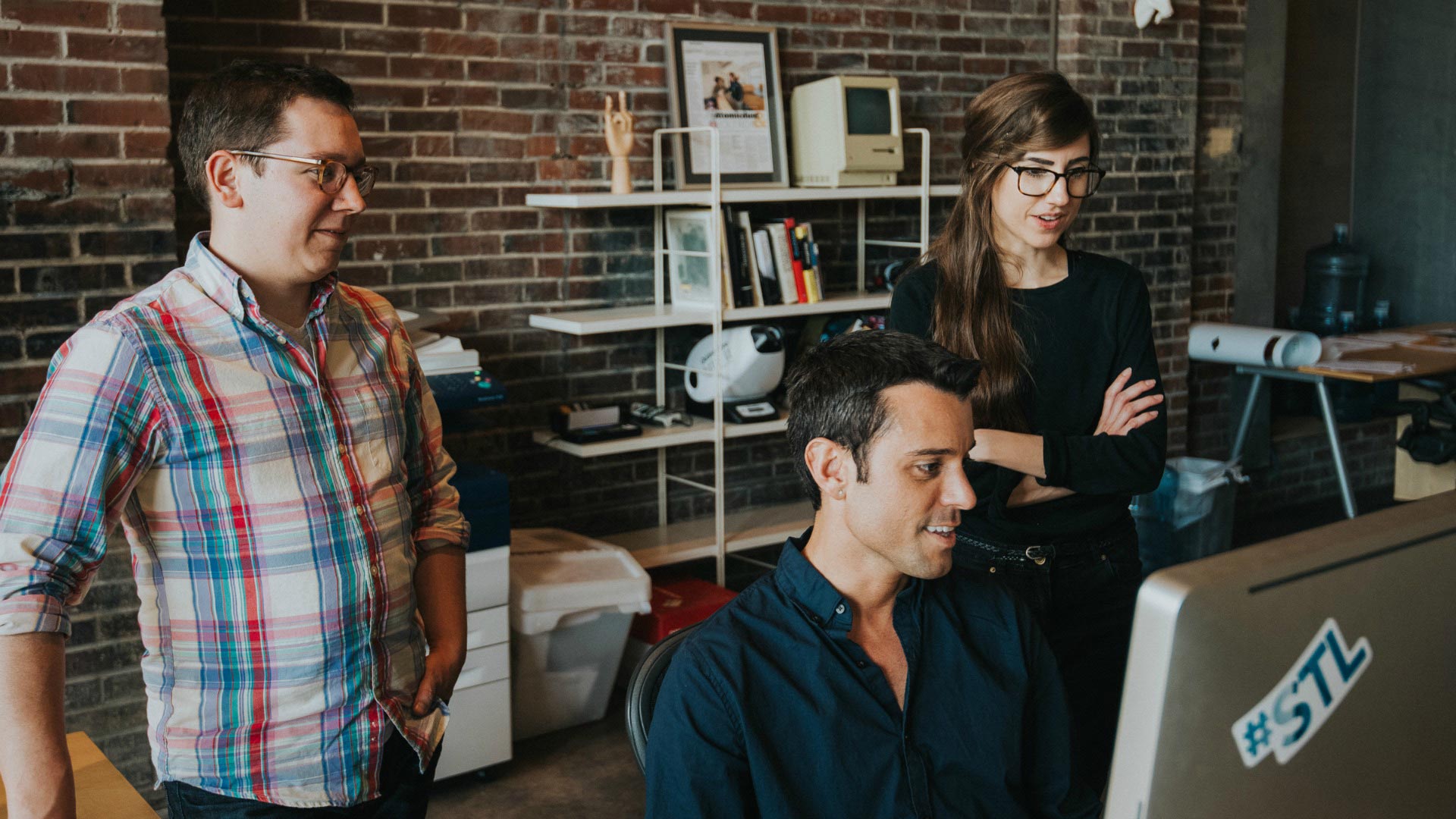Why Learning to Code Should Be Collaborative
With so much of our daily lives channeled through the web, phones and other forms of technical applications, the need for experienced developers is greater than ever.
That means learning to code is more important than ever. It’s also more popular than ever, based on the number of pop-up ads I see for coding classes. In my experience, one particular approach – collaborative coding – is the secret for anyone looking to code faster.
The Idea Behind Collaborative Learning Environments
Across the tech industry, more people are embracing the collaborative technique known as pair programming. Research has shown that those working in pairs write shorter, cleaner and more functional code with fewer bugs and better design.
No two people are alike – particularly when it comes to learning complex tasks like web or application development. That’s why pair programming can be so powerful. It allows would-be developers to learn how to work through problems, hone communications skills and resolve conflicts while learning to code. From my experience this is a great life lesson, in addition to being an excellent way to learn the business.
Epicodus and Pair Programming
I attended Epicodus coding boot camp in the beautiful city of Portland, Oregon. This particular boot camp is built on the idea that students will master new information better in pairs and in a collaborative environment. The instructors recommended that we always dig deep, challenge ourselves and work together when learning to solve new coding challenges.
The bootcamp was six months of 40-hour weeks, an immersive learning experience covering the web and coding tools. My class had around 120 new students all eager to further their knowledge in the art of coding. Ninety-five percent of the time, we worked in pairs. Most days, we shared a computer by taking turns, with one partner navigating the keyboard and the other providing direction and feedback.
The beauty of this technique is that we learned from each other. We caught each other’s mistakes, and came up with ideas we could not have come up with alone.
It also forced us to see our code (and the problems we were solving) from another perspective. This is a critical piece missing in solo coding courses that’s so important to success in the real world.
Collaboration has other benefits: personally, it helped me stay focused and productive throughout the day.
The very nature of collaboration gives you the chance to learn from people with different minds and skill sets. The classroom becomes a space of collective ideas, solutions and techniques that each student can pass on to the next.
What I Learned from Collaborative Coding
I am so glad I chose Epicodus and was able to improve my programming skills through a collaborative learning environment. With six months of quality, hands-on learning, I grasped far more than I could have had I spent years trying to decipher techniques and syntax on my own.
By working with different people on a daily basis and then applying what I learned from them, I felt a real sense of accomplishment every day. I love being a part of this industry, and am grateful for the chance to work with others to continue to learn.
There are so many tools readily available to learn to code these days, so if you’re ready to learn something new and exciting, I hope you will try them out. Please also reach out to those who may be able to help you on your journey of learning to code – both as mentors and fellow students.
Some tips to make collaboration work for you.
- Find others who work at about the same pace as you.
- Pair with someone with more experience, and use that opportunity to learn as much as you can.
- Pair with someone with less experience, and use that opportunity to perfect your own understanding by explaining what you know.
- Push your limits. Find projects and people that may otherwise be intimidating.
- Mix it up. If you always pair yourself with more experienced coders, you might miss opportunities to help others. If you always pair yourself with people with less experience, you may miss a chance a push your limits.
- Take some time to talk to your partner about your learning style before you start the day.
- Have a plan for what you want to learn and accomplish each day.
- Remember to breathe. Working with a partner can be frustrating, and sometimes a brief pause can diffuse any conflict.
Are you ready to start coding? Don’t be afraid. Really. Turn to codeacademy.com or freecodecamp.org, and take the free beginner’s course. Reach out to those in the industry for opportunities to learn. And yes, if you have the chance, give collaborative coding a try. I’m proof that it works.
Stay up to date on the latest marketing insights from Atomicdust.
Sign up for our newsletter and we’ll send you weekly marketing tips from our team, as well as the latest news and events from Atomicdust.

